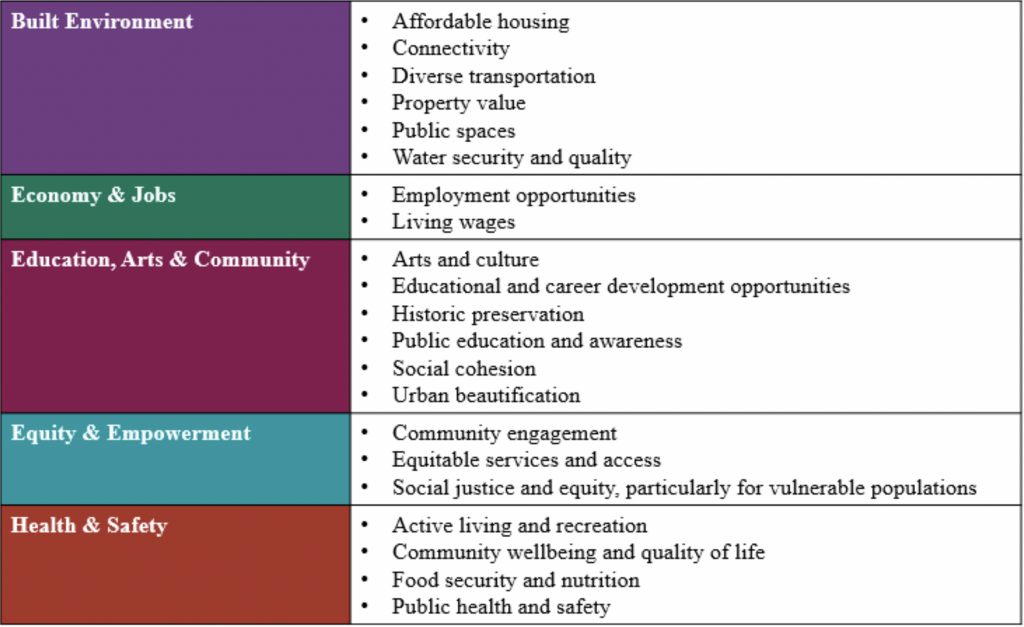Social Value of Adaptation and Resilience Projects
This UREx SRN research theme focuses on two primary objectives:
(1) the conceptual development of a framework for understanding social value creation in the climate adaptation and resilience context and
(2) knowledge exchange between cities: sharing successful climate projects that have generated significant social values in addition to mitigating climate risks such as droughts, heat waves, urban flooding, coastal flooding, and sea level rise. The second objective is achieved through the development and publication of the Social Value of Adaptation and Resilience Case Study Database.
Project members:
- Dr. Clark Miller (ASU School for the Future of Innovation in Society)
- Dr. Sara Meerow (ASU School of Geographical Sciences and Urban Planning)
- Robert Hobbins (ASU School of Sustainability)
- Sarah Dobie (RIT Collaboratory for Resiliency and Recovery)
Case Study Database
View Case StudiesAbout the UREx SRN Database
The UREx SRN case study database was created by the Arizona State University to showcase climate adaptation and resilience projects that co-create social value. The majority of the case studies were documented in the Summer of 2018, though the list continues to be updated as new case studies are submitted to the research team for review. The main purpose of this website is to act as resource for city practitioners.
This database focuses on climate adaptation, resilience, and transformation projects. Adaptation projects are those that mitigate vulnerability to climate risks while preserving existing systems and paradigms. Resilience projects build a community’s assets to improve the community’s ability to cope with and bounce back from a disturbance while preserving existing systems and paradigms. Lastly, transformation projects constitute a regime change that addresses underlying social, political, and cultural root causes of vulnerability.
Defining Social Value
Social value was defined in the context of climate adaptation and resilience through a synthesis of literature and further molded through interviews with city practitioners:
Climate adaptation and resilience creates social value when activities mitigate climate vulnerability or build community assets in ways that result in direct or ancillary outcomes beneficially impacting societal needs and challenges, particularly outcomes benefitting disadvantaged, underprivileged, or underrepresented (vulnerable) communities.
Case Study Selection Process
Case studies were documented from four existing databases containing climate adaptation and resilience case studies and through interviews with city practitioners. Databases used to document case studies include: Georgetown Climate Center Adaptation Clearinghouse, C40 Cities, U.S. Climate Resilience Toolkit, and The Atlas.
A Framework for Social Value Creation was developed by adapting the framework for the STAR Community Rating System. The STAR Community Rating System framework was used to categorize indicators of social value creation in the existing framework and from the Sustainable Development Goals and 100 Resilient Cities frameworks. Additional social value creation indicators were pulled from the case study analysis. Each indicator was evaluated using the definition of social value to determine if it was an indicator of social value creation. This framework was then used to determine if a framework created social value.

Fig: Framework for Social Value Creation adapted from the STAR Community Rating System framework
The following criteria were used for case study selection:
- Climate adaptation or resilience solution;
- North, Central, or South American city;
- City-level solution;
- 1+ social benefit created in addition to those related to the solution’s primary purpose and improvements to public health and safety through mitigation of climate risks;
- Project or program, not a policy, plan, or model; and
- Complete or in-progress.


